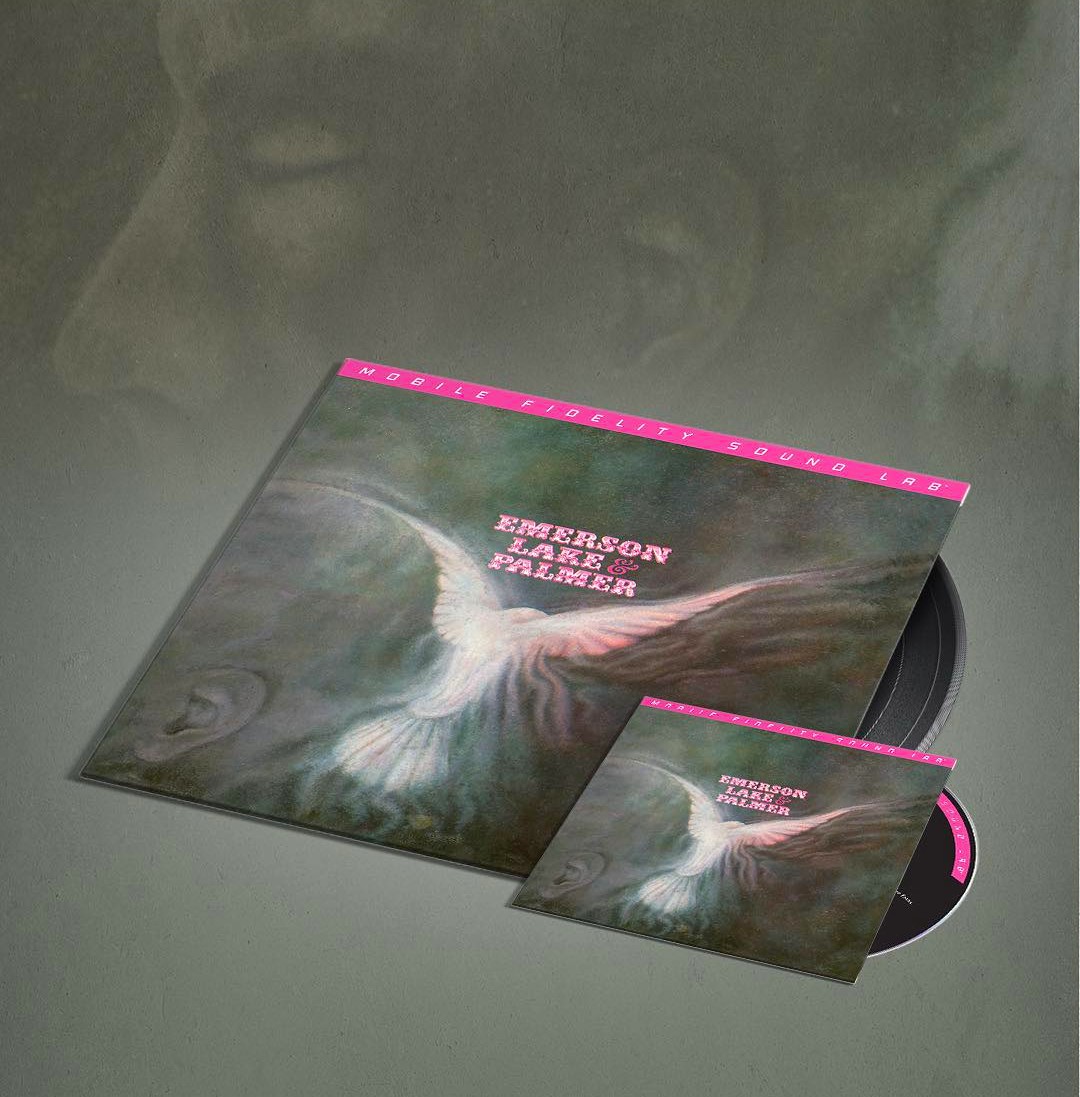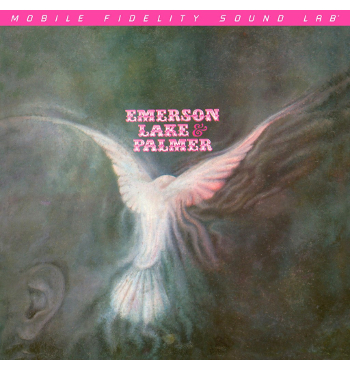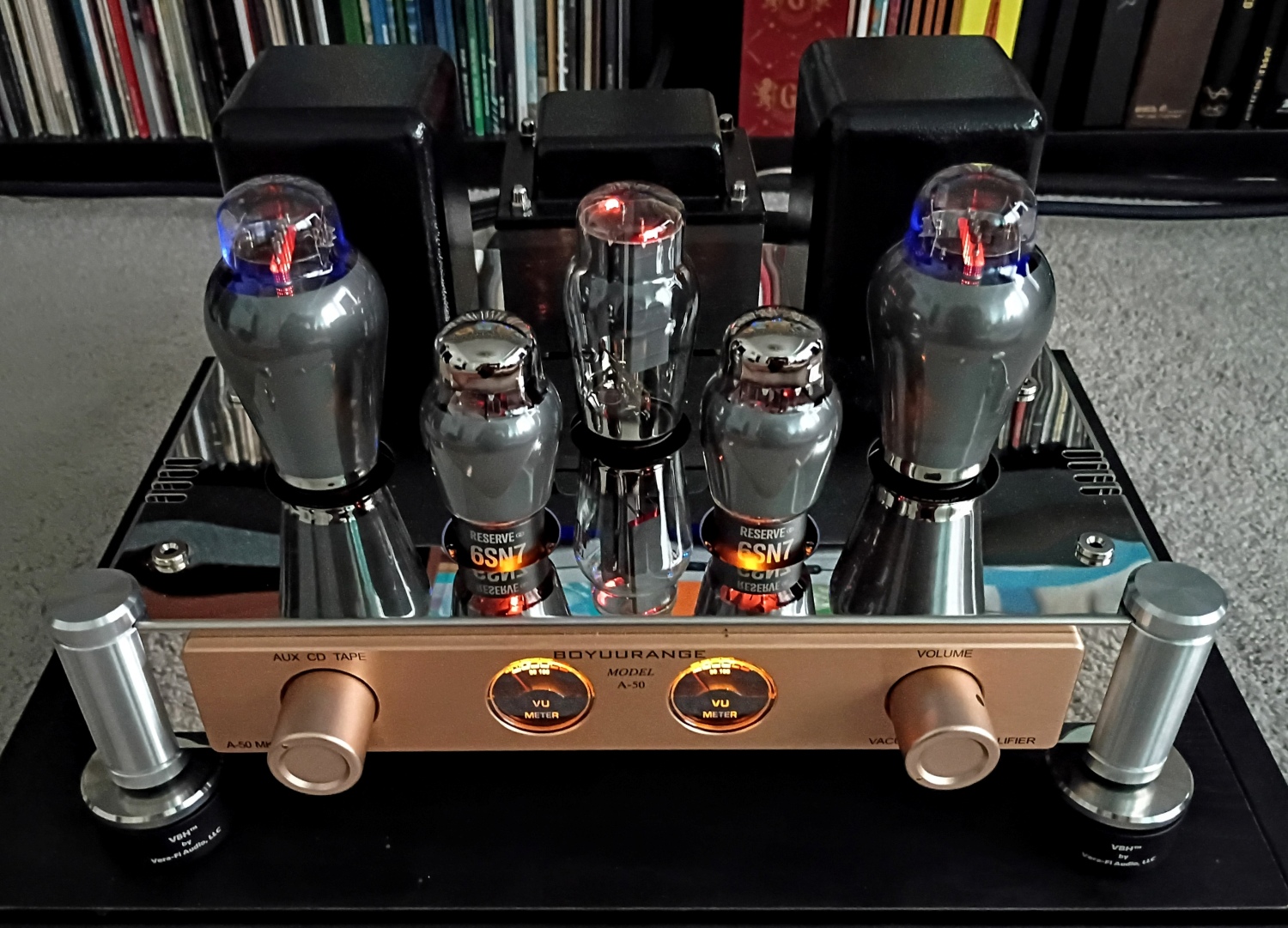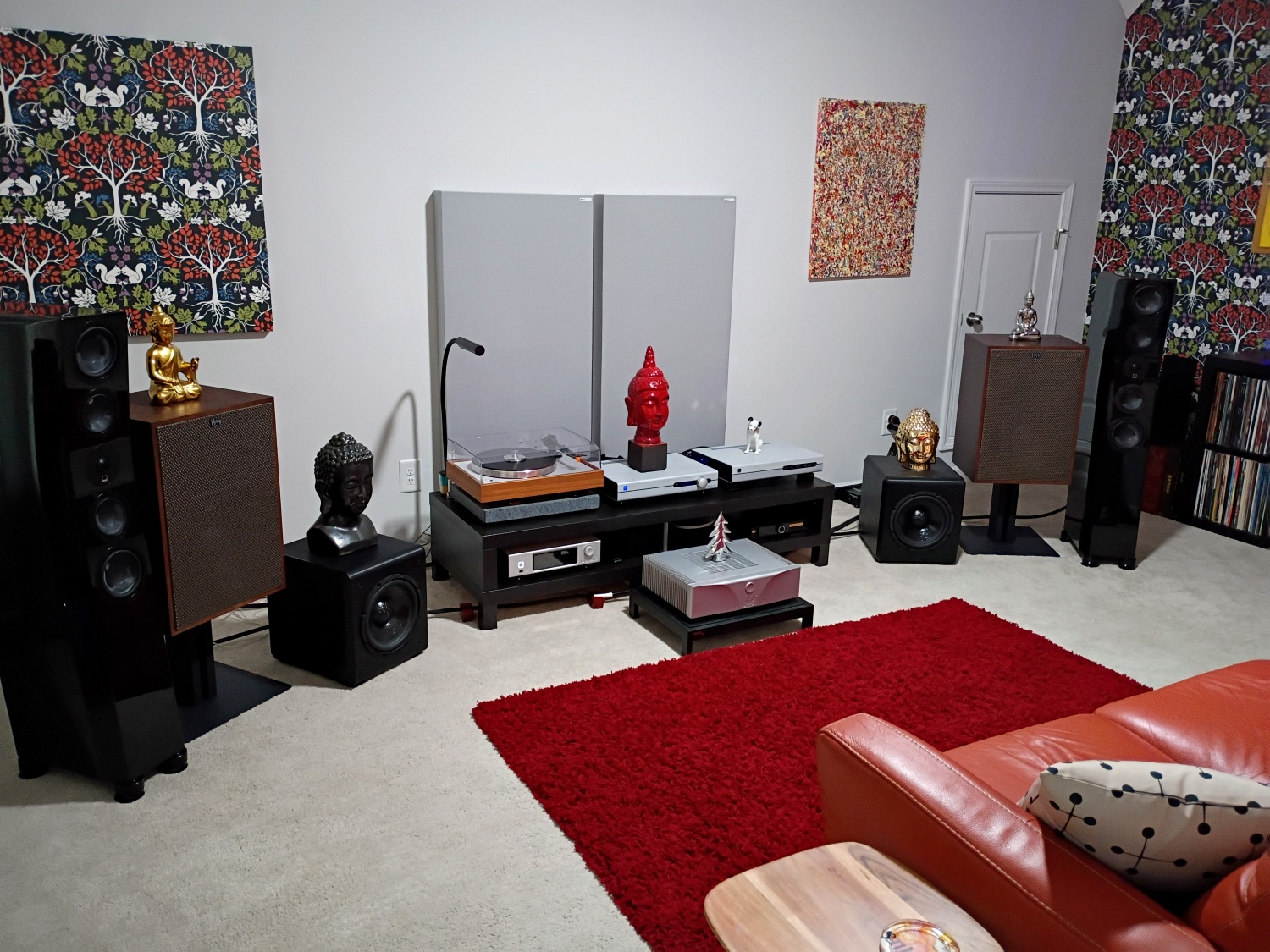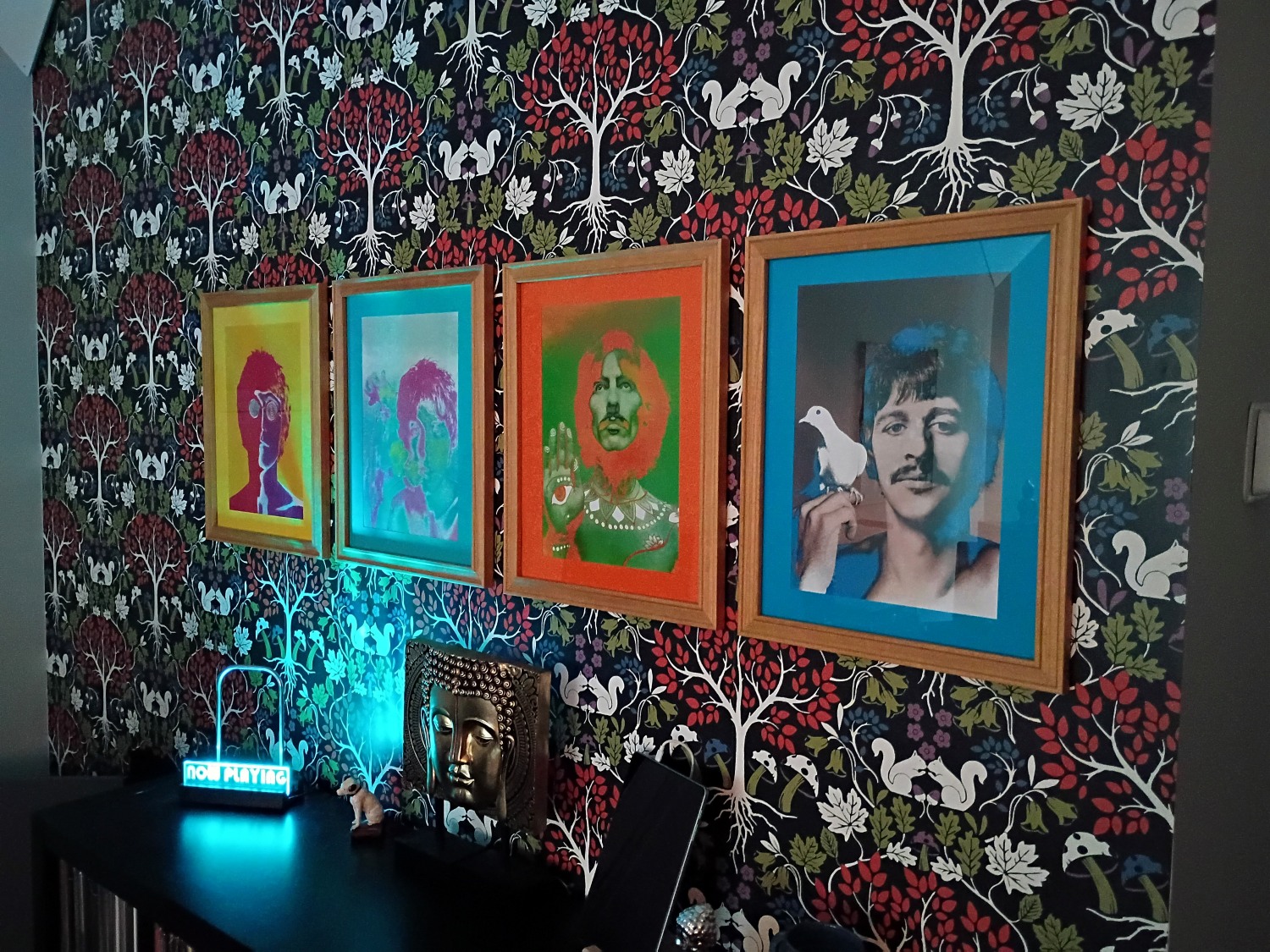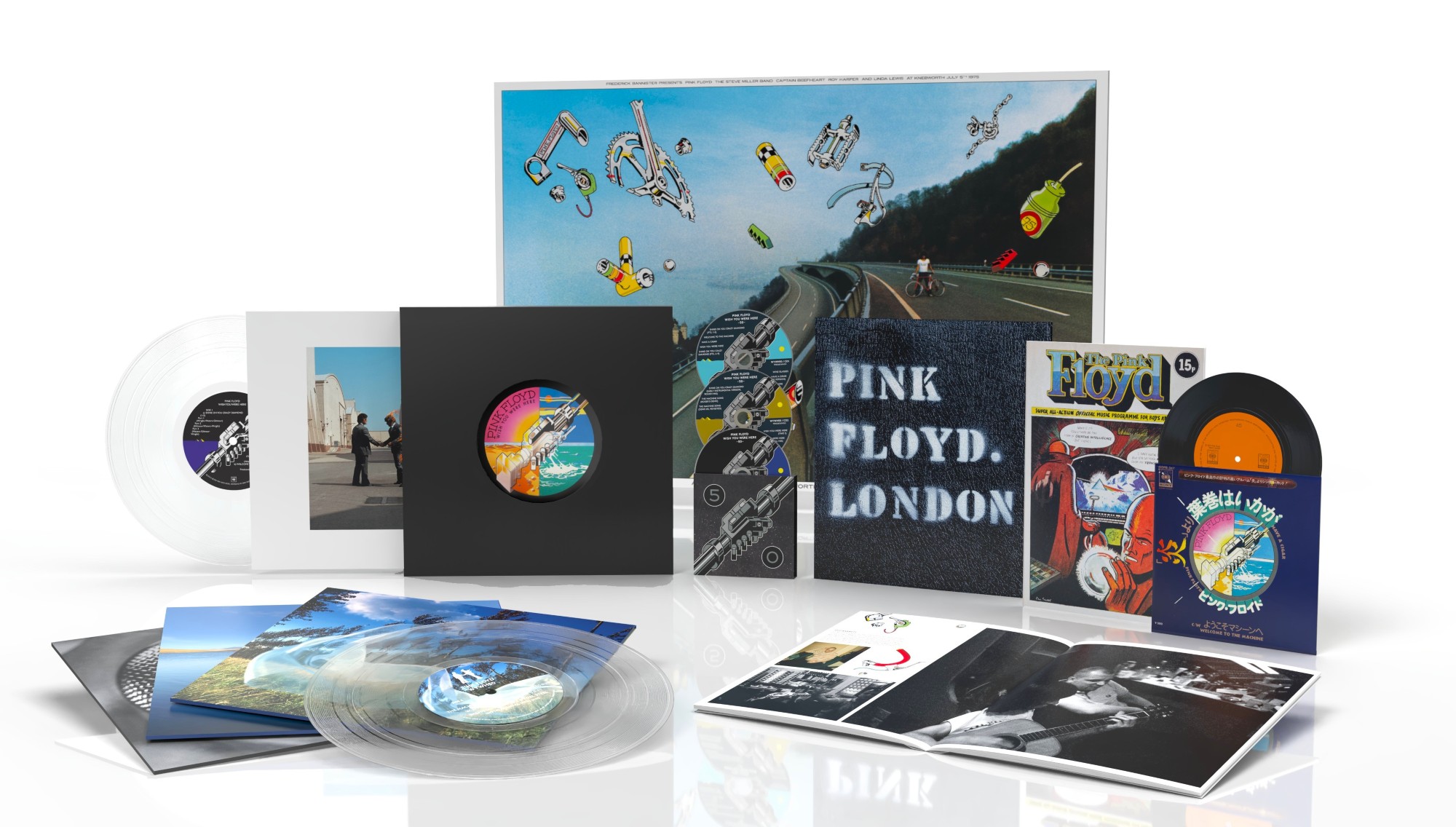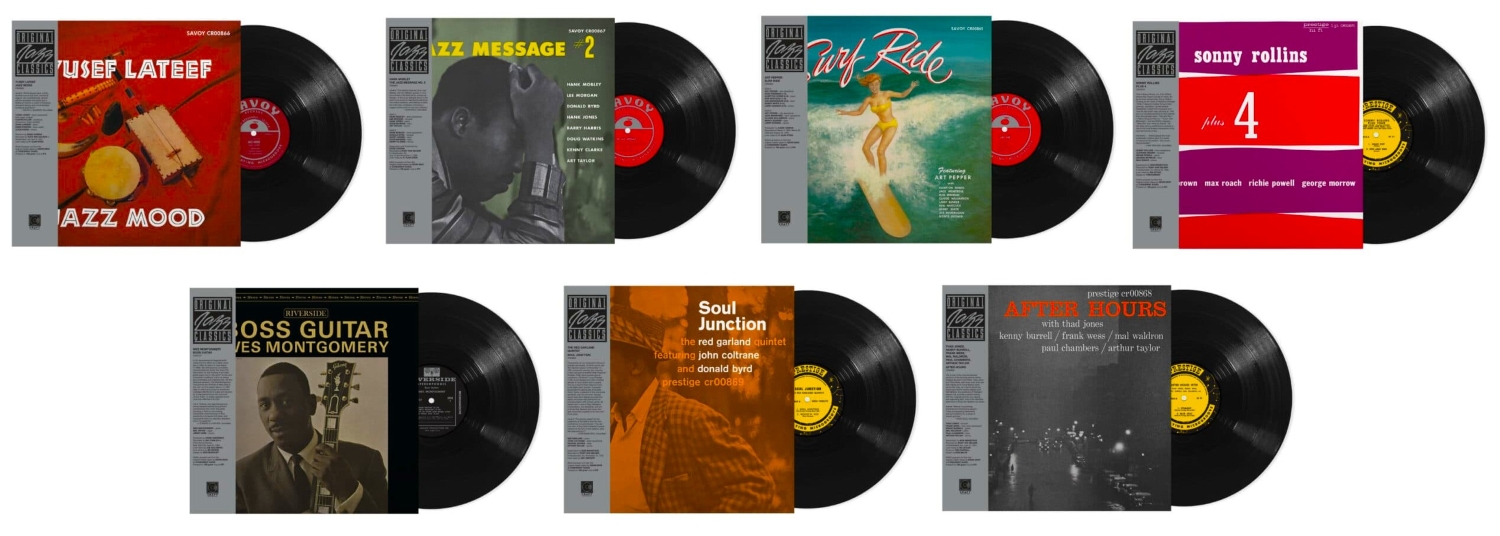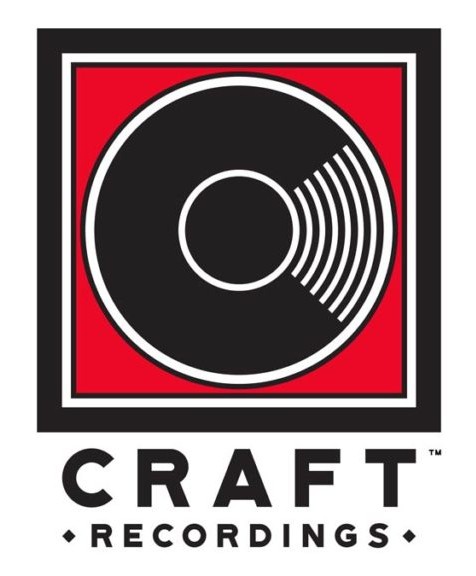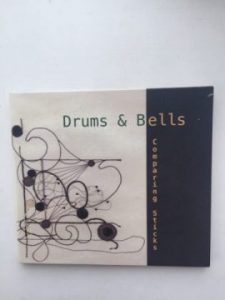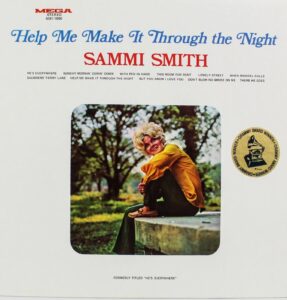I often have a hard time suppressing my level of excitement when I see upcoming new releases from Mobile Fidelity Sound Lab, but that pegged off the scale when I saw they were reissuing the debut album from prog rock legends Emerson, Lake & Palmer (ELP). The excitement meter reading nearly doubled when I came to the realization that it's a series, and not just a one-off! Well, the first one is here, the band's eponymous 1970 debut album, Emerson, Lake & Palmer, on a single 33 rpm, Mobile Fidelity Sound Lab 180 gram LP. ELP recorded their first album without having ever played together live; their first real gig was at the UK Isle of Wight Festival shortly after Emerson, Lake & Palmer's release. The Isle of Wight exposure and impressive chart success of the album's first single "Lucky Man" propelled the group very quickly into worldwide stardom. Other than a limited edition repress in 2012, Emerson, Lake & Palmer has been out of print domestically as an LP since it was last repressed on the Atlantic label in 1977.
Krieg Wunderlich remastered Emerson, Lake & Palmer from a 1/4 inch, 15 IPS analog tape copy¹ at Mobile Fidelity Sound Lab in Sebastopol, California, using MoFi's proprietary GAIN 2 system. An all-analog console was used throughout the process; the remastered tapes were then transferred to DSD 256, with lacquers cut at Fidelity Record Pressing (FRP) in Oxnard, California. Where the 180 gram, 33 rpm LP was pressed on audiophile vinyl, with Rick and Edward Hashimoto closely supervising all production processes. Emerson, Lake & Palmer's heavy, tip-on outer jacket was created by Stoughton Printing in California, using album art sourced from the original, with the LP encased in a premium rice paper inner sleeve. Emerson, Lake & Palmer is available as an individually numbered, limited-edition LP; you can order one from MoFi's webstore HERE. A numbered, hybrid SACD release is also in the works, and can be pre-ordered HERE.
Emerson, Lake & Palmer, Emerson, Lake & Palmer. 33 rpm Mobile Fidelity LP, $39.99 MSRP
Emerson, Lake & Palmer was one of the first super groups of progressive rock, with keyboard whiz Keith Emerson coming from The Nice; guitarist, bassist, and vocalist Greg Lake late of King Crimson; and drummer extraordinaire Carl Palmer formerly part of Atomic Rooster. Emerson, Lake & Palmer was recorded at Advision Studios in London, between July and September 1970; the album was produced by Greg Lake and was engineered by Eddy Offord. Emerson, Lake & Palmer was released on the Island label in the UK in November 1970, and a couple of months later on the Cotillion label in the US. The album's first single, "Lucky Man," helped propel its sales, and Emerson, Lake & Palmer quickly rose to the number four slot on the UK Billboard album charts, while reaching number 18 on the US charts. The album went gold on both sides of the Atlantic.
Emerson, Lake & Palmer was a polymorph of disparate styles, which fairly assured its place in the annals of British progressive rock. Keith Emerson brought his classically influenced keyboards to compositions like "The Barbarian," which borrowed its main theme from Béla Bartók, along with "Knife Edge," which quoted liberally from Leoš Janáček's Sinfonietta and J.S. Bach's French Suite No. 1. Emerson's "The Three Fates" is a neo-classical triptych: its first part, "Clotho," is portrayed on pipe organ, while the second part, "Lachesis," is a piano solo with both baroque and jazz influences; the finale, "Atropos," is a wildly improvisational piece for jazz piano with percussion accompaniment from Carl Palmer.
Greg Lake's compositions include the mostly acoustic "Take A Pebble," which is essentially the album's centerpiece. Sprawling across twelve-and-a-half minutes, it combines improvisational piano from Emerson with a lengthy acoustic guitar interlude that's augmented by Palmer's percussive effects. Lake's "Lucky Man" was written when he was a teenager, and it's also heavily acoustic—at least until Keith Emerson's Moog synthesizer seizes control of the song's last minute. Palmer's principal contribution, "Tank," was co-written with Emerson, and is a lengthy bass, drums, and keyboard workout that ultimately gives way to a full-on drum solo. While Emerson, Lake & Palmer seemed eclectically disordered, as a whole, it worked, and it didn't hurt that Greg Lake's voice was instantly recognizable to most fans from his days fronting King Crimson.
Listening to Mobile Fidelity's Emerson, Lake & Palmer
By clicking my name in the header above, you can see the full contents of my audio systems. My recently upgraded all-analog system now features a pair of Klipsch Heresy IV horn loudspeakers that run in tandem with a pair of Caldera 10 subs. The Heresy IV's are highly efficient, and are easily powered to reference levels by my Reisong Boyuurange A50 Mk III Single Ended Triode 300B tube amplifier, which now runs RAY Reserve and Select tubes exclusively. My turntable's Ortofon Quintet Bronze moving coil cartridge tracked FRP's pressing of Emerson, Lake & Palmer perfectly, offering playback that bettered every possible metric for sound quality and technical performance when compared to the LPs I had on hand.
Fidelity Record Pressing's 180 gram LP surfaces were pristine, beautifully glossy, and razor-flat, offering supreme quiet during playback. MoFi's new transfer had prodigious bass, such as I'd never heard from any of the legacy LPs in my collection, but it played across my system with perfect control and dynamics, and was never bloated. The enhanced levels of clarity and quiet enabled me to crank the volume level, allowing me to hear more deeply into the music while increasing my impression of envelopment. I've never heard Emerson, Lake & Palmer sound so viscerally dynamic as on Mobile Fidelity's new LP! "The Barbarian" hits you like a sledgehammer, right out of the gate; "Take A Pebble" has a level of deep quiet that's essential to its mostly delicate nature; "Tank" is a showcase for Carl Palmer's most decadent bombast, with the unrestrained dynamics of his drum kit rolling across the soundstage; "Lucky Man" was the song everyone knew before they even got the album, and it's delivered here with grace and elegance—at least until Keith Emerson's Moog powers it home. Listening to Mobile Fidelity's Emerson, Lake & Palmer, I felt an emotional connection like never before.
I had a pair of legacy LPs on hand; one was a Cotillion label original that I'd just about played to death and was quite noisy from extended early use with substandard equipment—even an intensive cleaning couldn't help it. I also had a mid-2000's European repress on the BMG label that was sourced from a 24/96 digital master, and was definitely quieter than my original, but was otherwise lacking in terms of providing a compelling listening experience. I'd actually been digging around for years, attempting to locate what I considered to be the very best remaster of Emerson, Lake & Palmer, whether analog or digital—none of the CDs, LPs, or digital versions I came across were up to par. With the exception of one—Steven Wilson's 2012 remix/remaster on a DVD-Audio disc, which is easily the best digital version I've come in contact with—I'd be really interested to hear how it stacks up to MoFi's new SACD when it arrives. But with regard to Emerson, Lake & Palmer as an LP reissue—the new Mobile Fidelity version is definitely the one!
Mobile Fidelity's Emerson, Lake & Palmer has quickly become my new reference
I've loved this album since I was a teenager—I'm an unabashed fanboy, to say the least! But finding a modern day copy that sonically takes me back to the goodness of those early days has been challenging. My legacy analog copies exhibit mostly noisy, flat, or relatively lifeless sound; my legacy digital copies are noisy and/or quiet, but often anemic and uninvolving². With Mobile Fidelity's new LP reissue of Emerson, Lake & Palmer, I've finally found the one that satisfies me on every level: an ultra-quiet pressing; incredible transparency; enhanced clarity and delicacy of sound; a detailed presentation that casts an uber-believable soundstage; and crushing, sledgehammer dynamics. MoFi's pressing has only been here for a few days, but it's rarely strayed from my turntable's platter—listening to it is as if ELP is playing live and in my room!
I have one minor quibble with this otherwise excellent release: as "Take A Pebble" fades out, the ending is more abrupt than I hear on any other version in my possession. It isn't jarringly abrupt, but instead of the song's natural decay, it's almost as if the tape ran out. I don't know if this is an artifact of the analog tape copy supplied to MoFi, but I don't hear it on other versions to the extent I hear it on this reissue. It's not a deal-breaker, and is only a minor dink in an otherwise perfect score, but I find it very curious, nonetheless.
Mobile Fidelity's reissue of Emerson, Lake & Palmer is beyond doubt the finest version of this LP I've ever heard, and the ultraquiet LP from FRP is key to allowing you to hear through to that goodness. Thanks to Bridget Citro Davis of Mobile Fidelity and Music Direct for making this review possible; Emerson, Lake & Palmer comes very highly recommended, and it appears that the second album in the series, Tarkus, is just around the corner!
Mobile Fidelity Sound Lab
All images courtesy of Mobile Fidelity Sound Lab and the author.
¹ As has been my recent experience with audiophile LP reissues, many record labels appear to be hesitant to hand over the original analog master tapes for catalog albums of a certain age. Sony Music—and all the labels they control, for example—will often only provide a 1:1 analog tape copy of the master tapes for use by any of the myriad of companies engaged in the reissue of audiophile LPs and SACDs. With regard to Mobile Fidelity Sound Lab, if the album jacket header reads "Original Master Recording," the album was remastered from the original master tapes. If the jacket header reads "Mobile Fidelity Sound Lab," it was remastered from an analog tape copy.
² The Steven Wilson DVD-Audio disc is the only exception here!




